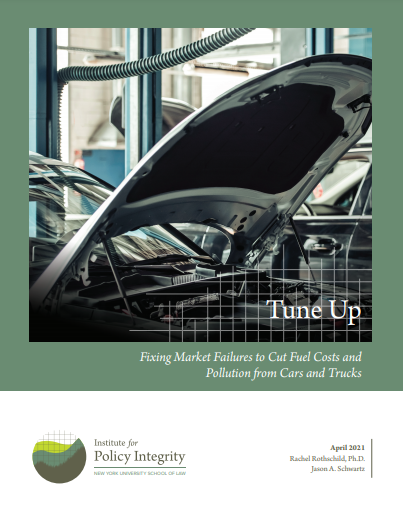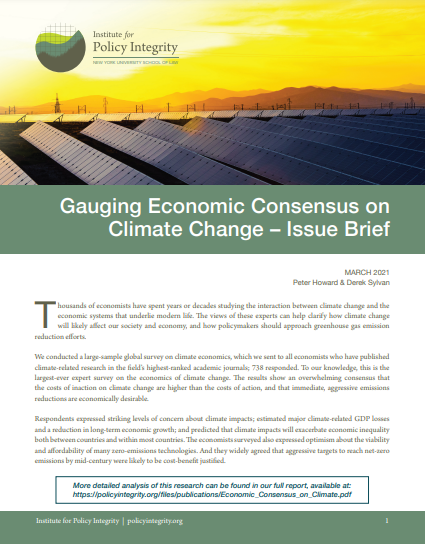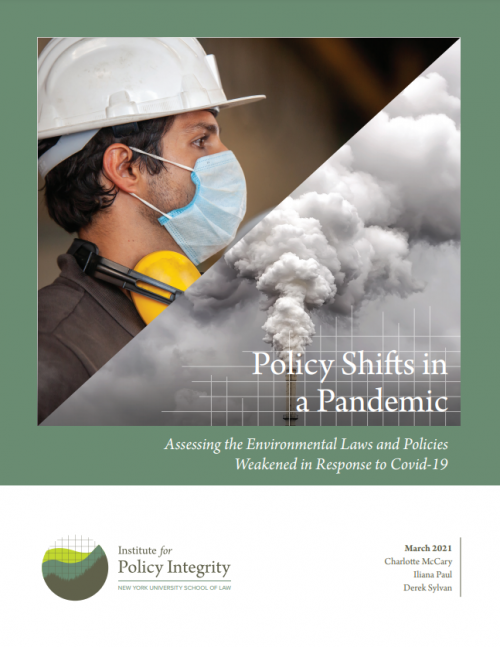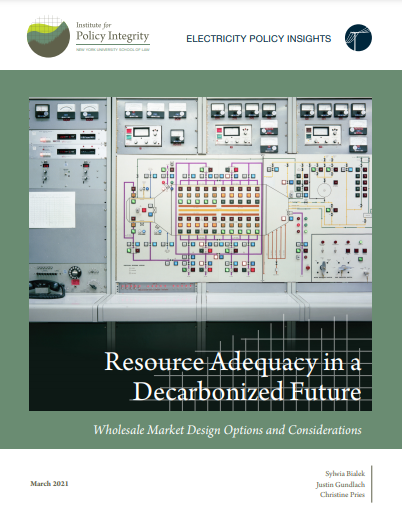-
Comments on FERC’s Office of Public Participation
The Federal Regulatory Energy Commission (FERC) solicited comment from interested parties on how the Commission should structure their Office of Public Participation to facilitate public engagement. We submitted comments highlighting the potential benefits of public participation by environmental justice communities and identifying best practices that FERC’s Office of Public Participation (OPP) should adopt.
-
Tune Up
Fixing Market Failures to Cut Fuel Costs and Pollution from Cars and Trucks
This report analyzes a key issue in U.S. transportation policy: the energy efficiency gap. We discuss the market failures that cause it, and recommend that the Biden administration continue the longstanding practice of incorporating private fuel savings in any evaluation of the costs and benefits of stronger standards for cars and trucks.
-
Department of Interior Delays, Reassesses Trump-Era Rule on Fossil Fuel Royalty Rates
The Department of Interior delayed the effective date of a Trump-era rule that lowers the royalty burden on corporations extracting fossil fuels on public lands. We provided significant input on the review of the rule, helping guide ONRR’s decision to delay the rule and further examine its legality and impact.
-
Comments to Federal Finance Housing Agency on Climate Risk Disclosure
The Federal Housing Finance Agency requested information on the risks that climate change and natural disasters pose to the housing finance system. We submitted short comments and attached our report with the Environmental Defense Fund, Mandating Disclosure of Climate-Related Financial Risk, which surveys the variety of risks that U.S. corporations, including those in the housing sector, face from climate change’s physical effects and policy and market consequences.
-
Comments on Interior’s Review of Oil and Gas Program
The Department of the Interior is conducting a review of its federal oil and gas leasing program. We submitted comments encouraging the Interior to pursue concurrent action on three fronts.
-
Comments to USPS on Purchase of Delivery Vehicles
The United States Postal Service (USPS) announced that it will prepare an environmental impact statement for the purchase of a mix of gas-powered and electrict delivery vehicles. We submitted comments on how the USPS can incorporate climate impacts into its review by using the social cost of greenhouse gases. We also urge the USPS to consider the alternative of an all zero-emission fleet.
-
Gauging Economic Consensus on Climate Change – Issue Brief
We conducted a large-sample global survey on climate economics, which we sent to all economists who have published climate-related research in the field’s highest-ranked academic journals; 738 responded. To our knowledge, this is the largest-ever expert survey on the economics of climate change. The results show an overwhelming consensus that the costs of inaction on climate change are higher than the costs of action, and that immediate, aggressive emissions reductions are economically desirable.
This Issue Brief highlights key takeaways from the survey. A more detailed report is available here.
-
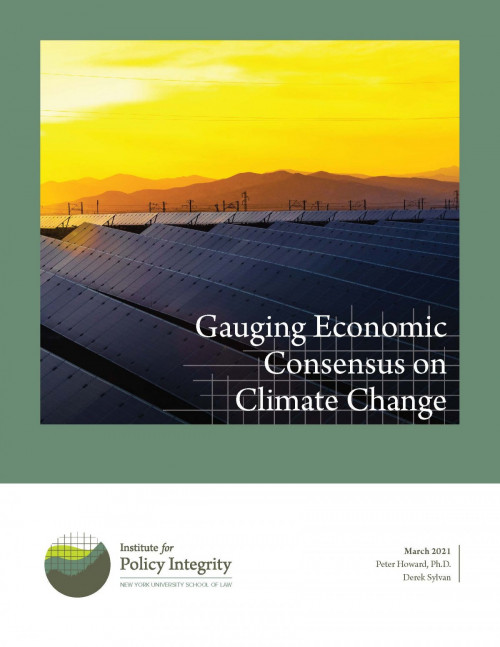
Gauging Economic Consensus on Climate Change
We conducted a large-sample global survey on climate economics, which we sent to all economists who have published climate-related research in the field’s highest-ranked academic journals; 738 responded. To our knowledge, this is the largest-ever expert survey on the economics of climate change. The results show an overwhelming consensus that the costs of inaction on climate change are higher than the costs of action, and that immediate, aggressive emissions reductions are economically desirable.
-
Policy Shifts in a Pandemic
Assessing the Environmental Laws and Policies Weakened in Response to Covid-19
The Covid-19 pandemic has led federal, state, and municipal policymakers to adopt a number of measures that suspended, delayed, or relaxed a variety of environmental safeguards. Our report analyzes these pandemic-related policy shifts and their impacts on public health and the environment. We also provide guidance on how agencies can increase transparency about these actions, counteract detrimental effects, and preemptively create guidelines to improve responses in a future emergency.
-
Resource Adequacy in a Decarbonized Future
Wholesale Market Design Options and Considerations
This report examines the relationship between resource adequacy and renewable energy. It explores the impacts of renewables on the functioning of resource adequacy mechanisms and how different resource adequacy approaches affect renewable investment, finding that current approaches—with certain adjustments—are capable of ensuring that the lights stay on during a future that is powered largely by renewable energy.
Viewing recent projects in Climate and Energy Policy




